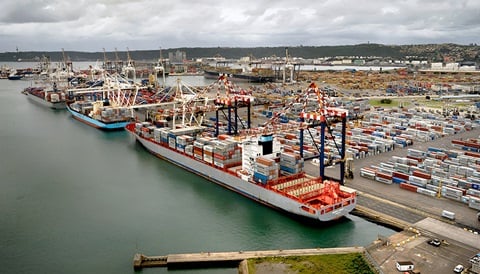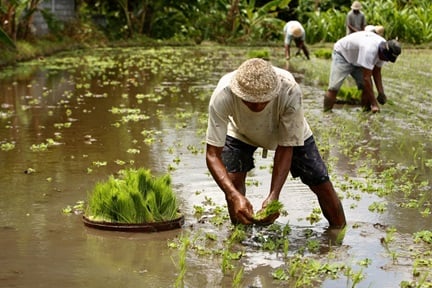Investors, NGO, and banks help East African farmers diversify crops
How the Farm to Market Alliance (FMA) has helped almost 90,000 smallholder farmers claw out of subsistent farming.
By Johan Burger

In 2015, a multinational team comprising of the World Food Program (WFP), the Alliance for a Green Revolution in Africa (AGRA), Bayer, Rabobank, Syngenta and Yara International joined hands to establish the Farm to Market Alliance (FtMA). The FtMA’s has a value chain solution "PATH" that supports African smallholder famers to transform to more commercial agriculture practices by addressing the major challenges that smallholder farmers face. PATH is an acronym that explains the four integrated pathways that the FtMA employs to empower smallholders: (P)redictable markets, (A)ffordable finance, (T)echnologies and quality inputs, and (H)andling and storage solutions.
The FtMA provides smallholder farmers in Kenya, Rwanda, Tanzania, and Zambia with training on improving crop quality and volume, as well as reducing losses after harvest. The farmers enrolled in the initiative have progressed from producing just enough to feed their families to growing enough produce to sell to the market. Some have also bought cattle and are exploring ways of further developing their agricultural and livestock produce. They are also taking out crop insurance for protection against climate-related threats. The FMA has supported them in this initiative as well. The farmers are now benefitting from good markets for their produce, they have money to support their families, and can provide medical insurance as well.
As far as the success of the FtMA is concerned, in the agricultural season of 2018/2019, the FtMA successfully engaged almost 90,000 farmers in Kenya, Rwanda, Tanzania, and Zambia. Its network of Farmer Service Centres serves as a one-stop shop through which farmers gain access to service providers. Since its inception, the FtMA has catalyzed over “US$30m in smallholder crop sales purchased by commercial buyers and involved over 65 local private sector players, significantly increasing the transactions between smallholders and formal commercial markets.”
The FMA is the type of institution required to support Africa’s agriculture sector. Farmers are provided with skills development initiatives and access to markets. As indicated, farmers can now reduce their risk by broadening the scope of their crops, increase their yields, and learn from each other. The quality of their lives has increased significantly. This kind of public-private partnerships will go a long way to address the challenges inherent in the sector. It also has the potential to restore the attraction of the sector to the youth of Africa. More of these initiatives should be launched.
Additional reading:
Anon. 2021. Smallholder farmers in Rwanda expand into commercial markets with WFP’s support. ReliefWeb. 9 September 2021. Available at https://reliefweb.int/report/rwanda/smallholder-farmers-rwanda-expand-commercial-markets-wfp-s-support. Accessed 20 September 2021.
WFP. nd. Farm to Market Alliance: Taking farmers from seed to market. World Food Programme. Available at https://innovation.wfp.org/project/farm-market-alliance. Accessed 16 October 2021.







